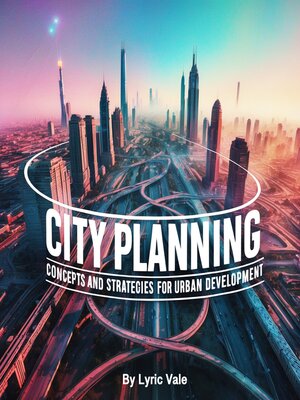
Sign up to save your library
With an OverDrive account, you can save your favorite libraries for at-a-glance information about availability. Find out more about OverDrive accounts.
Find this title in Libby, the library reading app by OverDrive.



Search for a digital library with this title
Title found at these libraries:
| Library Name | Distance |
|---|---|
| Loading... |
City planning is more than just the design of roads, buildings, and parks; it is the blueprint for a society's future. The way cities are planned has a profound impact on the lives of their inhabitants, influencing everything from the air they breathe to their access to resources and opportunities. At its core, city planning seeks to create environments that are not only functional but also sustainable, inclusive, and resilient. In an era where urbanization is increasing rapidly, the importance of thoughtful city planning has never been greater.
The planning process involves much more than the physical layout of a city. It encompasses strategies for economic growth, social equity, environmental sustainability, and cultural preservation. A well-planned city can enhance quality of life, boost economic productivity, and provide a sense of community, while a poorly planned city can lead to overcrowding, inadequate infrastructure, and environmental degradation. As more people move into cities every year, urban planners are tasked with creating spaces that are not only livable but also adaptable to future needs.
One of the most pressing reasons for effective city planning is the growing concern over environmental issues. Cities are responsible for a significant portion of global carbon emissions, and urban sprawl has led to the depletion of natural resources. Through sustainable urban planning practices, cities can reduce their environmental footprint by promoting energy-efficient buildings, renewable energy sources, and green spaces. Additionally, proper planning can mitigate the effects of climate change, such as flooding and heat islands, by incorporating resilient infrastructure that can withstand extreme weather conditions.







